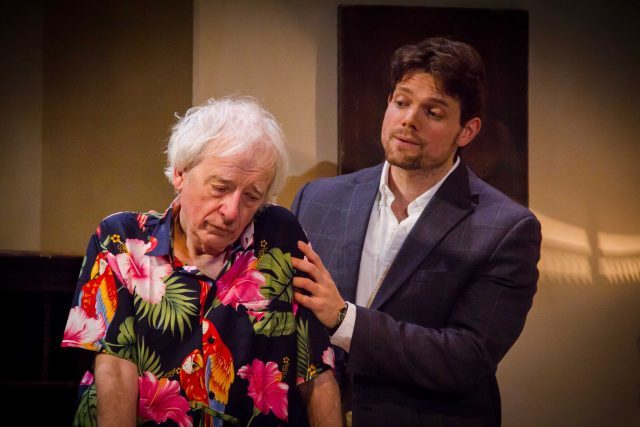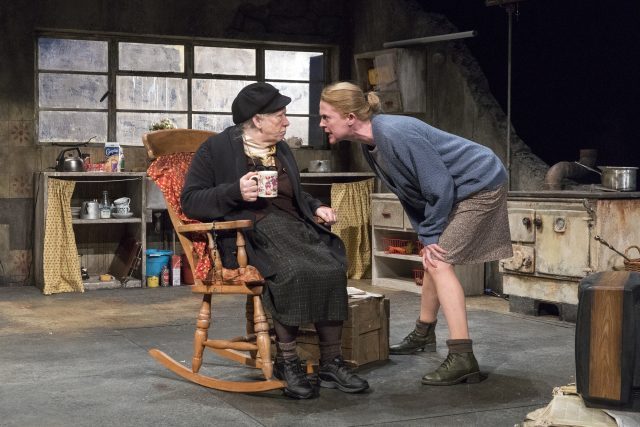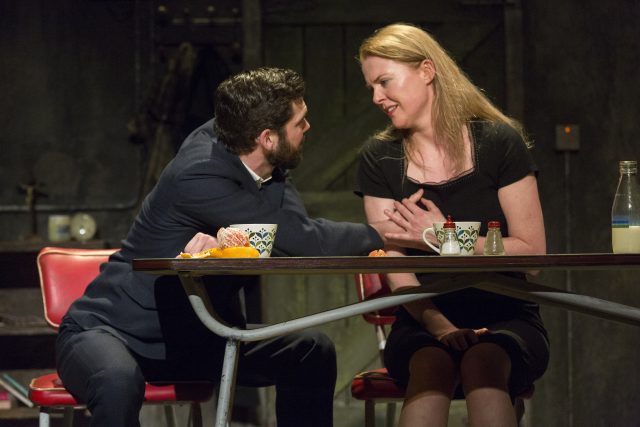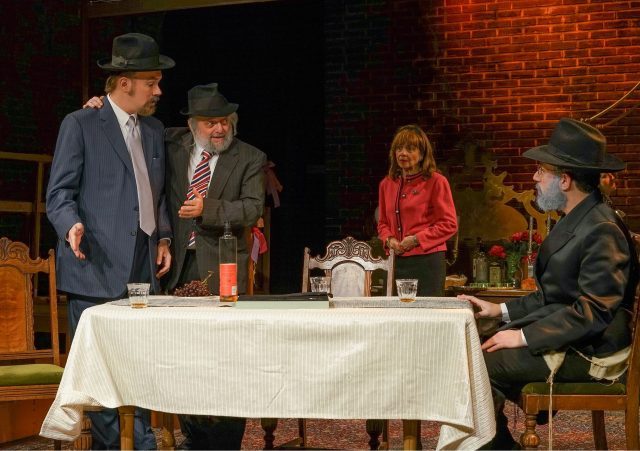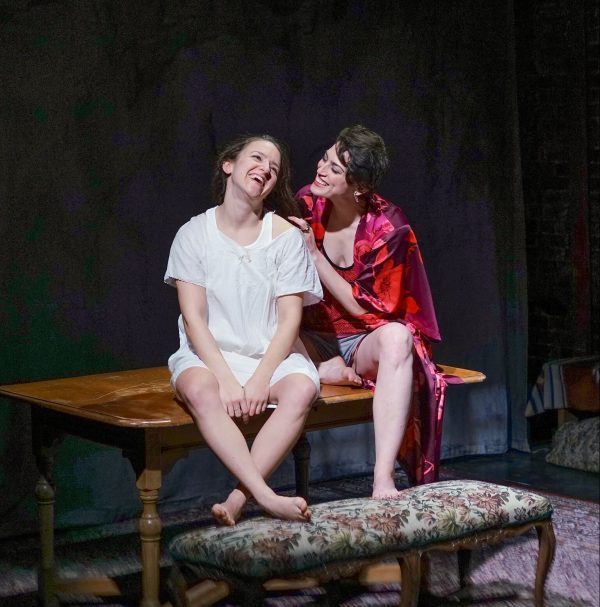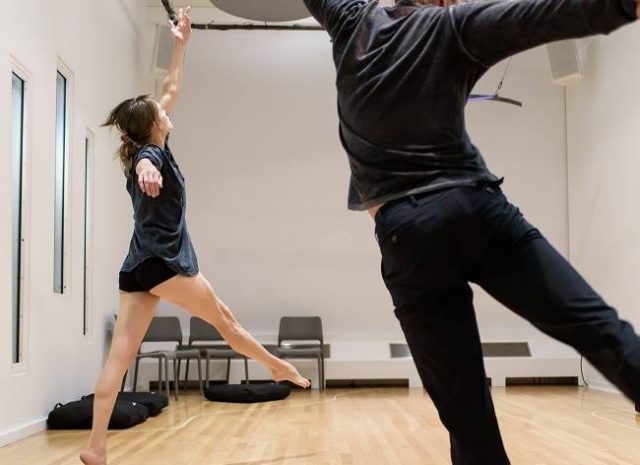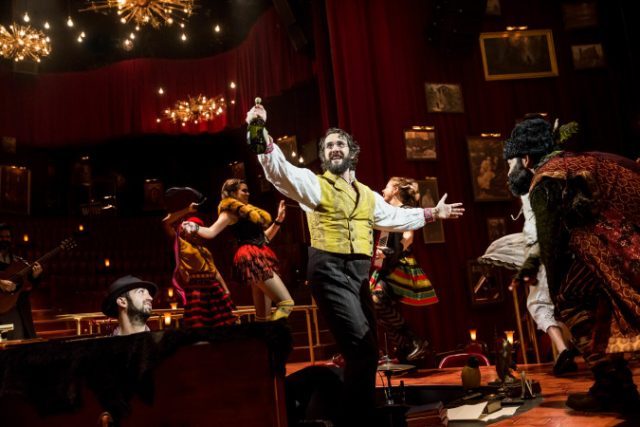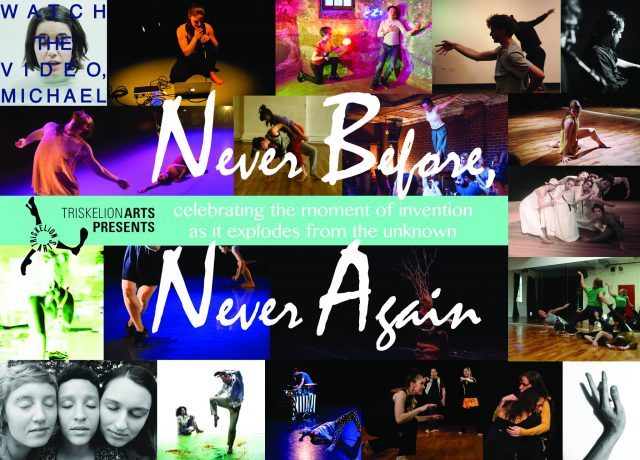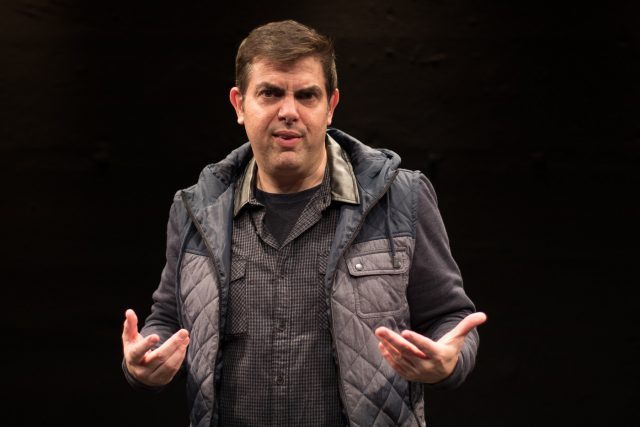
Jason O’Connell channels various Batmans and villains in intimate one-man show at Abingdon (photo by Ben Strothmann)
Dorothy Strelsin Theatre, Abingdon Theatre Company
Abingdon Theatre Arts Complex
312 West 36th St. between Eighth & Ninth Aves.
Tuesday – Sunday through January 29, $25
212-868-2055
abingdontheatre.org
www.jason-oconnell.com
Jason O’Connell lets his inner geek rise in his intimate and entertaining one-man show, The Dork Knight, which opened last night at the Abingdon Theatre, where it runs through January 29 but deserves a longer engagement. O’Connell, who has appeared in such recent envelope-pushing Bedlam productions as Sense & Sensibility, Hamlet, and The Seagull as well as A Midsummer Night’s Dream at the Pearl, shares his deep connection to the Batman superhero, which started for him as a child but really began taking off when Tim Burton’s Batman was released in 1989, starring Michael Keaton as the Caped Crusader and Jack Nicholson as the Joker. “That just seemed to combine everything I cared about at a very specific, formative moment in my life. And it was popular!” O’Connell, who was a high school senior in Commack when the film came out, says. “So for me, a kid who was never really on board with the popular thing — to suddenly see people loving something that I had always loved was . . . intoxicating. And from that moment on, for better or worse, the Batman movies became these touchstones in my life.” The Hofstra graduate shares personal details seen through the lens of Batman, Batman Returns, Batman Forever, Batman & Robin, the Dark Knight trilogy, and Batman v Superman: Dawn of Justice, doing impressions of Michael Keaton, George Clooney, Val Kilmer, and Christian Bale as Batman, Nicholson and Heath Ledger as the Joker, Danny DeVito as Penguin, Arnold Schwarzenegger as Mr. Freeze, and Jim Carrey as the Riddler. “They say the world is divided into two groups: Superman fans and Batman fans. It’s kinda like cat people and dog people. You’re allowed to like both, of course, but usually you prefer one over the other, and that preference tends to say something true about you,” O’Connell explains. “Superman sees the good in all people. Batman distrusts everyone until they prove themselves worthy. Now, I try to keep a sunny disposition, I like to think I’m an optimist at heart, and yet . . . somehow . . . Batman has always exerted the stronger hold on me,” he adds, noting how Batman has no superpowers, that he is “just a scared little boy who transforms himself through the sheer power of his will. Batman could be anybody — with a billion dollars.”
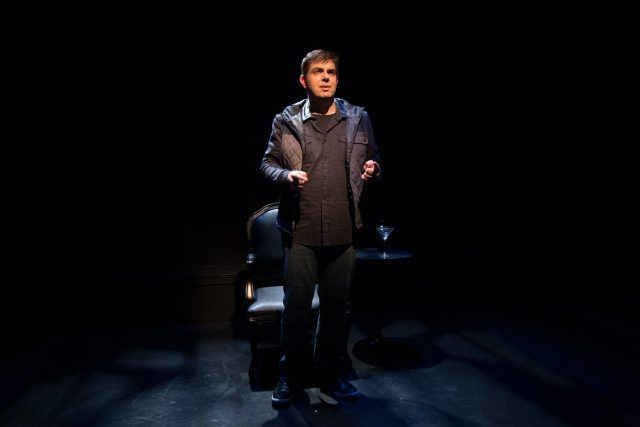
Writer and star Jason O’Connell geeks out in funny and poignant solo show THE DORK KNIGHT (photo by Ben Strothmann)
The inaugural production in Abingdon’s Second Stage Series, The Dork Knight is playing at the tiny Dorothy Strelsin Theatre, where an audience of fifty-six sits on three sides of Jerry Marsini’s spare set, consisting of a chair and a table. O’Connell occasionally sits but usually stands, telling his story in a very personable way, making constant direct eye contact with the audience as if seeking its approval and understanding — which he receives, as members of the audience regularly nod in agreement, cathartically letting a little bit of their own inner geek out. There’s also a lot of laughter along with the self-deprecating and brutally honest O’Connell’s clever insight, which includes seeing plenty of Hamlet in Burton’s Batman. His Keaton impression is dead-on; with just a few facial gestures, he looks and sounds like the controversial Batman portrayer. His Ahnuld is excellent as well, faring better than some of his others. Directed by Abingdon artistic director Tony Speciale (The Absolute Brightness of Leonard Pelkey, Stet), The Dork Knight is a fun and involving eighty-minute confession about the effects pop culture has on us all. At one point, O’Connell discusses a would-be high school date in which he and “this beautiful athlete/artist/musician who drove a convertible and had long, blonde hair that smelled like strawberries” went to see Batman, and after the film, she declared, “‘That’s a classic. That’s our generation’s Star Wars. It’s our Wizard of Oz. This is, like, art.’ To which I said, ‘Marry me please we get married now!’ She didn’t. No one has yet. But that’s another one-person show.” Whenever that next one-person show is, we hope O’Connell sends out the Bat signal, because we’ll be there in a jiffy.
